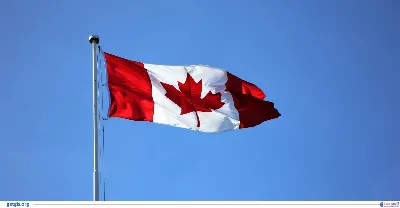Canada Immigration Update: Provinces and Territories Welcome Economic Immigrants
Updated On
-
Copy link
Explore how Canadian provinces and territories embrace economic immigrants. Learn about the Provincial Nominee Program (PNP) and more opportunities in Canada.
Candidates have been extended invitations to apply for provincial immigration by Ontario, British Columbia, Quebec, Alberta, Manitoba, and PEI.
In a significant development for aspiring immigrants, all Canadian provinces and territories, except Quebec and Nunavut, have opened their doors to economic immigrants seeking provincial nomination through the Provincial Nominee Program (PNP).
This move strengthens a candidate's application for permanent residency when they apply to Immigration, Refugees, and Citizenship Canada (IRCC). Quebec, on the other hand, maintains its autonomy over immigration matters and sets its own targets for economic immigrant selection.
Also read: India Restarts Visa Services in Canada for Select Categories
Immigration Levels Plan and Strategic Immigration Program
IRCC has released its Immigration Levels Plan for 2024-2026, outlining the number of permanent residents it intends to welcome over the next three years. In 2024, IRCC plans to admit 110,000 newcomers through the PNP, with 120,000 expected in both 2025 and 2026.
The plan aligns with IRCC's recently unveiled Strategic Immigration Program, which emphasizes efficiency, newcomer integration, and infrastructure coordination. To achieve its goals, IRCC will engage with provincial governments and other stakeholders to better understand local needs and capabilities.
Recent Provincial Immigration Updates
- Ontario held two draws for its Master's Graduate and Ph.D. Graduate streams of the Ontario Immigrant Nominee Program (OINP), inviting 1,051 and 66 candidates respectively.
- British Columbia conducted four PNP draws, inviting over 203 candidates, including Skilled Workers, International Graduates, and candidates in early childhood education, healthcare, and other priority occupations.
- Quebec released its Immigration Levels Plan for 2024 and 2025, targeting 30,650 and 31,500 skilled workers respectively. It also held two draws, inviting 1,220 candidates with French language proficiency.
- Alberta conducted two draws, inviting 22 candidates under the Dedicated Healthcare Pathway and 100 candidates under the Family Connection and Primary Occupation In Demand stream.
- Manitoba held three PNP draws, inviting 400 candidates, including Skilled Workers in Manitoba, Skilled Workers Overseas, and candidates from the International Education Stream.
- Prince Edward Island invited 41 Labour and Express Entry candidates working in the healthcare, manufacturing, food processing, and agriculture sectors.
Canada's commitment to welcoming skilled immigrants remains strong, with provincial and territorial governments actively inviting candidates to contribute to their economies and communities.
Explore more Opportunities with GetGIS!
As Canada takes steps to welcome Economic Immigrants, those seeking new opportunities in this nation should navigate the changing landscape with expert guidance. GetGIS, as a leading immigration consultancy, stands as the ideal partner for individuals aspiring to secure their place in Canada.
With expert insights and unwavering support, GetGIS is your go-to consultant to help you navigate the shifting immigration landscape and make your dreams a reality. So, why just dream it? Let's achieve it together. Schedule a Free Consultation Today!
FAQs
1. What is the Provincial Nominee Program (PNP)?
The Provincial Nominee Program (PNP) is a federal immigration program that allows Canadian provinces and territories to select and nominate skilled immigrants for permanent residency. A nomination from a province or territory strengthens an applicant's chances of being approved for permanent residency by Immigration, Refugees and Citizenship Canada (IRCC).
2. What are the benefits of applying through the PNP?
There are several benefits to applying for permanent residency through the PNP, including:
- Increased chances of success: Having a provincial nomination significantly increases your chances of being approved for permanent residency.
- Faster processing times: PNP applications are often processed faster than applications submitted directly to IRCC.
- Greater flexibility: PNP programs often have more flexible eligibility criteria than IRCC's federal programs.
3. Which provinces and territories participate in the PNP?
All Canadian provinces and territories, except Quebec and Nunavut, participate in the PNP. Each province or territory has its own PNP with its own unique eligibility criteria and application process.
4. How can I find out if I am eligible for a PNP?
The best way to find out if you are eligible for a PNP is to visit the website of the province or territory you are interested in immigrating to. Each province or territory has a dedicated PNP page that outlines eligibility criteria, application process, and contact information.
5. What are some resources for learning more about Canada immigration?
There are many resources available for learning more about Canada immigration. Some of the most helpful resources include:
- Immigration, Refugees and Citizenship Canada (IRCC) website: https://www.canada.ca/en/services/immigration-citi...
- CanadaVisa.com: https://www.canadavisa.com/canada-immigration-disc...




